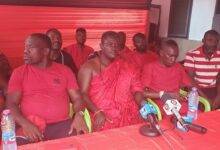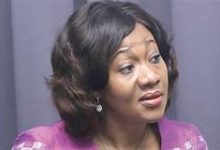Political parties are the backbone of democracy in any country because they contest elections to secure the mandate of the people to rule them.
Among the things they do in governance is to ensure accountability in which case they try to check corruption.
However, the situation seems to be different in Ghana due to some happenings involving the political parties in the country.
From the perspectives of the citizenry and some civil society organisations (CSOs), political parties and, for that matter, politicians in the country are heavily corrupt.
Their corrupt practices begin with the flouting of the very laws they are supposed to uphold and enforce.
Therefore, we support the advocacy by the Ghana Anti-Corruption Coalition (GACC), a CSO, for an amendment of the Political Parties Act, 2000 (Act 574) to include the disclosure of funding sources for presidential and parliamentary candidates.
Currently, the law mandates political parties to submit only their audited official financial accounts to the Electoral Commission (EC), which then makes it public.
However, it is the contention of the Coalition that such audited accounts do not reflect all the sources of their financial inflows, as actual campaign funds often bypass these official accounts as they are independently managed by the flagbearers and parliamentary candidates.
One may ask for evidence of this, but certain happenings give credence to that position.
For instance, there have been public outcry over millions of Ghana cedis spent in presidential and parliamentary primaries of both the National Democratic Congress (NDC) and the ruling New Patriotic Party (NPP), the two major political parties in the country.
Today, even some politicians continue to express concern over the canker of corruption perpetrated by political parties and politicians.
One such worried politicians is the Majority Leader, Osei Kyei-Mensah-Bonsu.
The Member of Parliament for Suame in the Ashanti Region has asserted that the structure of internal elections in the various political parties encourage corruption.
The lawmaker says the practice where candidates dole out money to delegates who have “constituted themselves into a cabal” in the name of transport fares is dangerous and threatens the country’s democracy.
His statement that “we all know we are sowing the seed of corruption at the base level of our parties. You reap what you sow” is very instructive.
It is clear that the law is not strong and broad enough to deal with corrupt practices of political parties.
Usually, because of the power of the politician to do and undo, some people or organisations are afraid to point out their evil ways.
It is good that even fellow politicians have started talking about corrupt practices of political parties and individual politicians, which makes it easier for others to join the conversation.
This conversation must be sustained until some change is achieved otherwise the country’s democracy is jeopardised.
Besides, the public purse would continue to suffer as politicians who pay huge sums to secure power would explore all diabolic means to recoup their money, usually through inflating the cost of public projects, diversion of public funds and all manner of embezzlements.
We do not need only a broad-based law but also one enforced and deterrent enough to check corruption among political parties and politicians.
Parliament should give urgent attention to the call for amendment of Act 574.




